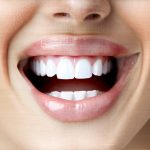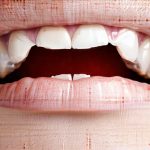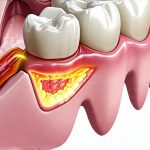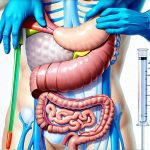The intricate relationship between oral health and overall well-being is increasingly recognized, extending far beyond just preventing cavities. A critical component often overlooked in dental procedures – from simple cleanings to complex surgeries – is the impact on our gut microbiome. The gut flora, a vast community of microorganisms residing in our digestive tract, plays a pivotal role in immune function, nutrient absorption, and even mental health. Dental work, anesthesia, and the post-operative period can all disrupt this delicate balance, leading to potential complications beyond oral discomfort. Understanding how these interventions affect the gut and what steps we can take to support its recovery is essential for optimizing healing and long-term health.
The disruption isn’t necessarily a direct consequence of dental procedures themselves, but rather stems from several interconnected factors. Stress associated with treatment, changes in diet due to pain or medication, antibiotic use frequently prescribed post-operatively (or even preventatively), and altered immune responses all contribute to imbalances within the gut ecosystem. This imbalance, known as dysbiosis, can manifest in a variety of ways, including digestive issues like bloating, diarrhea, or constipation, weakened immunity making individuals more susceptible to infections, and potentially even impacting mood and cognitive function. Proactive support for gut health during these times isn’t about preventing the necessary dental care; it’s about mitigating potential side effects and fostering a faster, smoother recovery process. If you find yourself struggling with upset stomach https://vitagastro.com/managing-upset-stomach-during-intensive-study-or-work-periods/ during stressful times, it’s important to address it proactively.
The Impact of Dental Procedures & Anesthesia on Gut Flora
Dental procedures, even seemingly minor ones, can indirectly affect the gut microbiome through several mechanisms. First, stress is a significant factor. The anticipation of dental work, coupled with the procedure itself, triggers the release of cortisol – a stress hormone that directly impacts gut motility and permeability. Increased intestinal permeability, often referred to as “leaky gut,” allows undigested food particles and toxins to enter the bloodstream, triggering an immune response and further disrupting the microbiome. Secondly, anesthesia, while vital for pain management, can also disrupt gut function. Some anesthetic agents have been shown to alter gut motility, leading to changes in bacterial populations and reduced diversity.
Antibiotics are perhaps the most well-known disruptors of the gut microbiome. Frequently prescribed after certain dental surgeries (especially implants or extractions) to prevent infection, antibiotics don’t discriminate between harmful and beneficial bacteria. They indiscriminately kill off a significant portion of the gut flora, creating an opportunity for opportunistic pathogens to flourish. This can lead to antibiotic-associated diarrhea, which is itself a sign of dysbiosis, and potentially longer-term consequences for gut health. It’s crucial to remember that antibiotics should only be used when absolutely necessary, and always under the guidance of a healthcare professional. Understanding why gut sensitivity https://vitagastro.com/why-gut-sensitivity-is-higher-during-travel-or-stress/ increases during stressful events is key to managing these effects.
Finally, dietary changes are common during post-operative periods. Individuals may struggle with chewing or swallowing due to pain or swelling, leading to a restricted diet often lacking in fiber – essential for nourishing beneficial gut bacteria. Soft foods, while easier to manage, often lack the prebiotic fibers that support microbial diversity and function. This reduction in dietary complexity further exacerbates the imbalance within the gut ecosystem. If you experience nausea https://vitagastro.com/managing-nausea-during-periods-of-intense-focus-or-work/ during stressful periods, remember to prioritize gentle nutrition.
Strategies for Pre-Operative Gut Support
Preparing the gut before dental work can significantly minimize disruption and enhance recovery. This isn’t about a dramatic overhaul of your lifestyle, but rather incorporating simple strategies to bolster microbial resilience.
- Focus on prebiotic-rich foods: Incorporate foods like garlic, onions, leeks, asparagus, bananas, and oats into your diet in the weeks leading up to your procedure. Prebiotics act as food for beneficial bacteria, helping them thrive.
- Consider a probiotic supplement: Discuss with your healthcare provider whether a probiotic supplement is appropriate for you. Not all probiotics are created equal; look for strains that have been clinically studied and are known to support gut health. Lactobacillus and Bifidobacterium species are commonly recommended. Start taking the probiotic at least one week before your scheduled appointment, if possible.
- Manage stress: Employ stress-reduction techniques like meditation, deep breathing exercises, or yoga in the days leading up to your procedure. Reducing cortisol levels can help minimize gut disruption. If you’re navigating stressful times and experiencing weak appetite https://vitagastro.com/managing-nausea-and-weak-appetite-during-times-of-stress-or-anxiety/, consider incorporating these techniques.
Supporting Gut Health During Post-Operative Recovery
The post-operative period requires a continued focus on gut support as the body heals and recovers. This is particularly important if antibiotics were prescribed.
- Prioritize easily digestible foods: Stick to soft, nutrient-rich foods that are gentle on the digestive system. Pureed soups, smoothies with added protein powder, yogurt (with live cultures), and cooked vegetables are good options.
- Gradually reintroduce fiber: As your tolerance improves, slowly increase your intake of fiber-rich foods. Fiber helps restore gut motility and supports the growth of beneficial bacteria.
- Consider a postbiotic supplement: Postbiotics are metabolic byproducts produced by probiotics during fermentation. They offer benefits similar to probiotics without introducing live microorganisms, which can be helpful if antibiotics have drastically reduced gut flora.
Navigating Antibiotic Use & Gut Restoration
If antibiotics are prescribed, it’s crucial to take proactive steps to mitigate their negative impact on the gut microbiome and aid in its restoration.
- Timing of probiotic supplementation: Avoid taking probiotics at the same time as your antibiotic dose. This can reduce the effectiveness of the probiotic. Instead, separate their administration by at least 2-3 hours.
- Extended probiotic support: Continue taking a high-quality probiotic supplement for several weeks – even months – after completing your antibiotic course to help repopulate the gut with beneficial bacteria.
- Fermented foods: Incorporate fermented foods like kefir, sauerkraut, kimchi, and kombucha into your diet (if tolerated). These foods naturally contain probiotics and can contribute to a more diverse microbiome. However, introduce these slowly to assess tolerance, especially post-surgery. Tools for gut checks https://vitagastro.com/tools-for-gut-checks-during-menopause-or-andropause/ can help you monitor your progress. If you’re facing potty training challenges https://vitagastro.com/supporting-gut-health-during-potty-training-challenges/, remember that gut health is key! For emergency situations, consider these pantry staples https://vitagastro.com/best-pantry-staples-for-emergency-nausea-days-or-gut-flare-ups/.
The information provided in this article is for general knowledge and informational purposes only, and does not constitute medical advice. It is essential to consult with a qualified healthcare professional for any health concerns or before making any decisions related to your health or treatment.


















